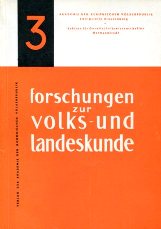Zum Kampf um die Entwicklung der sozialistischen Literatur bei der deutschen Minderheit in der Rumänischen Volksrepublik
On the Struggle for the Development of Socialist Literature among the German Minority in the Romanian People's Republic
Author(s): Heinz StănescuSubject(s): History, Cultural history, Studies of Literature
Published by: Editura Academiei Române
Keywords: Socialist literature; German minority in Romania; reactionary and progressive tendencies; ideological development after 1948;
Summary/Abstract: In his work, the author studies the progressive and reactionary tendencies in the first phase of the development of the literature of the German national minority in our country after August 23, 1944. After the liberation, the reactionary forces resumed their inimical activity on the literary front, first under a religious mask, in poems, stories and essays published in the clerical press of Timisoara and Sibiu; then the tendencies to promote the so-called "German unity" were felt. Characteristic for this phase are: the essays of Hermann Roth, the prose of Adolf Meschendörfer and the poetry of Gerda Mieß and Gabriel Stefanie. Parallel to these overtly reactionary tendencies, the poetry that was intently detached from current events, the lyrics of "the ivory tower", developed and dominated at times, being illustrated among others by the volume of verse published by Frida Binder-Radler, Imanuel Weißglas and Martin Brandt. In the works of those who transiently embraced the concept of “art for art’s sake”, such as Else Kornis and Ewald Ruprecht Korn - the germs of the healthy ideological and artistic development after 1948 can be detected. At the same time, however, progressive and revolutionary tendencies began to assert themselves more and more strongly: first lyricism developed, then literary reportage – by Heinrich Simonis for example. Of course, this transitional phase does not lack in declamatory accents or proletkultist tendencies such as those in Bernhard Thorhoffen's literary criticism or in Hans Faber's lyric. The study warns readers against some attempts to overestimate the qualitative leap forward in the literature of the German national minority in the RPR in 1944-1948 due to the inclusion of revolutionary themes and the endeavour of assimilating and applying the realist-socialist creative method. The author then follows in more detail the gradual development, not without contradictions in this period, of the poets Alfred Margul-Sperber, Franz Liebhard and Werner Bossert, poets who are today in the lead on the ideological front in the RPR.
Journal: Forschungen zur Volks- und Landeskunde
- Issue Year: 1960
- Issue No: 03
- Page Range: 99-119
- Page Count: 18
- Language: German
- Content File-PDF

